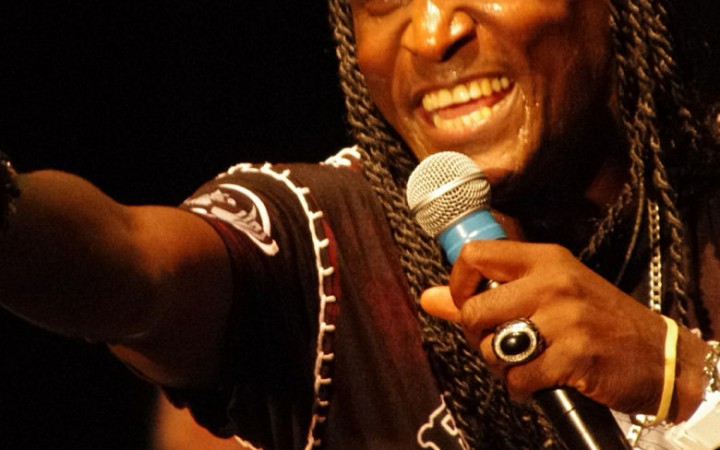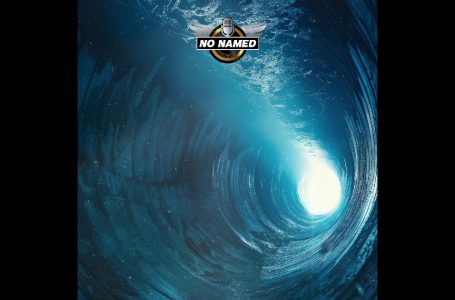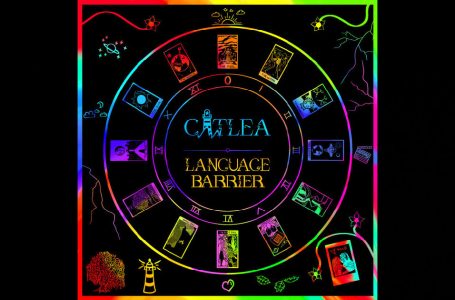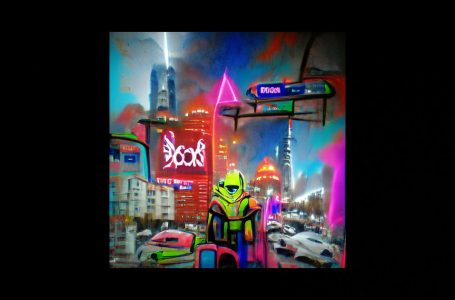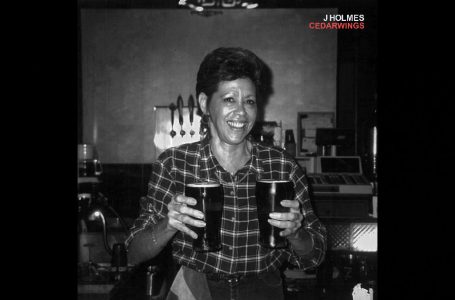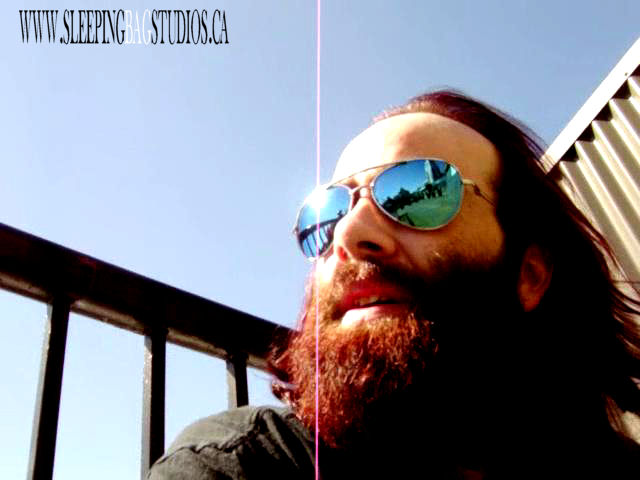K-Bass
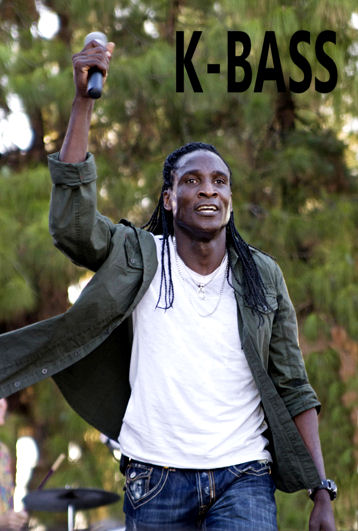
One of the things I can’t help but love and appreciate the most about what we do through these interviews is the fact that we can reach creative and inspirational minds from all over the globe.
Today we’re proud to present you another one of those very people – K-Bass.
You already know that I personally can’t get enough of people that are truly passionate about the music they make – so let me tell you firsthand that speaking with K-Bass through this interview was a true inspiration to myself and reading his responses came at a time where I had personally needed a little extra motivation around the SBS camp…
Perspective can be everything – and sometimes even when you’ve got one, you need another. It was truly incredible to read about some of the paths that K-Bass has walked (Or run!) in life and his attitude to continue on helping, to continue on spreading joy to other people shows no signs of relenting anytime soon. Straight up – the world needs more people just like him.
But like other creative minds we’ve come to know and love through SBS – K-Bass has found his way to our little musical internet hub-in-the-wall – a place I like to think I see many of the minds gathering that have the power to really unite the people and shift the social status back in favour of the creative rather than the commerce. People like K-Bass, who have known poverty in their lifetime undoubtedly know one thing that many of us don’t living in a privileged society; The music never goes away.
No matter what the circumstances in your life are – let nothing keep you from LIVING it.
Thank you once again K-Bass – I appreciate your thoughts, insight and time very much.
Interview with K-Bass
SBS: K-Bass! Nice to meet you! I have to mention before we even get started here – I’m EXCITED to see what you have to say through this interview! First impressions are always huge with me – I like people to make an impression. Let me tell you this my friend – I was ecstatic to know we were working together the minute after reading Eric’s e-mail to me regarding you and your music. I’m sure he won’t mind me quoting him here – but he told me directly that you are “an amazing human being.” That sir – is a fantastic way to be described by another person! Eric clearly believes in you and your music – can you tell us a little about him, how you found him and what his role is in your music today?
K-Bass: I got to know Eric Schumacher when I was the lead singer for a band called The “Key Ingredients of African Soul”. Eric, a film producer and actor and an advocate for the arts in general, has always been very interested in promoting the careers of other artists and invited the Key Ingredients to place some music in the sci fi series he co-produced, “Zhon: The Alien Interviews” (http://www.whoiszhon.com). I knew right away that he was the person that I needed for my project. I felt a connection between he and I instantly. I contacted him two months later and asked him if he could help me produce some music videos. He and I share the same values and are on the same page when it comes to the moral aspects of life. He is an enthusiastic, fantastic, and goal oriented human being with a fighting spirit that I can really relate to. We have a huge mutual respect and have become good friends. After directing my first music video with a former business partner of his, he agreed to become my manager and now manages my band through his company Spin Arizona, a division of Picture Arizona, LLC. (http://www.picarizona.com)
SBS: I wasn’t more than a glance into reading into your bio when I found myself inclined to agree with him! You DO seem like “an amazing human being!” The story of you gaining your education and going on to athletic and musical achievements is completely inspiring. You now have a nursing degree alongside your musical career as well, which is awesome! Everyone knows that an education is always a great thing – but what made it something you wanted for yourself so badly?
K-Bass: I grew up in poverty. In a lot of Africa, any formal education at all is very rare. An education often means the difference between continuing the cycle of poverty and making a change for the better. My Mom and Dad sacrificed a lot to get me into school but they could not afford to pay for a university education. So I stopped going to school and joined the army to serve my country and, most importantly, to help put food on the table for my family. I discovered that God blessed me with a strong athletic ability and I worked very hard to become the best runner I could. Again I was blessed enough to win many races as a cross country runner and became one of the top runners in the Ivory Coast which gave me the opportunity to travel all over the world. One of the reasons I got in to running by the way, instead of another sport was that being a runner was cheap. The only equipment I had to buy was a pair of shorts and a jersey and that was simply all that my family and I could afford. Good running shoes were far too expensive, but I couldn’t let that stop me either. My whole family was counting on me. So I ran barefoot! Winning races enabled me to get myself and my family out of this sickness called poverty, something that could have been done perhaps through higher education, but that just wasn’t an option for me. My true love was music, of course. I was raised into a family of musicians and have always had a deep love of music, but I could not pursue a career in music until I came to the United States.
If I had not had some formal education I would not have been able to articulate myself as well l as I did when speaking publicly and doing TV interviews etc. as a runner. I would have missed so many opportunities without the education my parents worked so hard to provide for me. Education is the key to future for our children and it should not be taken for granted, even in the USA. Great teachers like Dr. Martin Luther King and Mahatma Gandhi would not have been able to teach us everything that they did, they would not have been able to express their brilliance without a good formal education. So many great human achievements have been made possible by great knowledge and great sacrifices to gain that knowledge.
SBS: Looking back on the pursuit of that education from where you are now K-Bass, do you ever feel like you wish you had spent more time focusing on the music instead, or were you able to concentrate on both without problems? Did the studying itself ever take away from you being able to create your art in any way?
K-Bass: My music career is a long journey which began when I was born and will end when I die. Everything in its time. I believe that God put me in poverty so I could experience the hardship of being desperately poor and so that I could learn what it took to get out of poverty. After coming to the United States I learned English and gained a nursing degree not only to make money, but so that I could make a profession out of helping my fellow human beings directly. When working with patients I would often sing to them, to put a smile on their faces when no one would come to visit. I even loved comforting dying patients and helping them to make that transition with dignity.
All of the challenges I’ve gone through including the process of pursuing an education in two countries, have helped to make me a better singer and composer and helped me to articulate my message and understand what that message should be. Music is not just about having a beautiful voice. It is about substance, and the ability to connect with people with a meaningful message delivered through well structured music. Education and the work that came from education has been an important part of my development as a musician just as every other part of my life has given me understanding and experience so that I have something worth singing about.
SBS: Though I haven’t heard the first album, “Too Much Negativity” – what I’ve learned about you so far has been anything BUT negative! So I’d have to assume it’s a comment on society somehow – like maybe you felt like there was too much of it in the world when you released that album in 2009… Fill me in on what I missed by not knowing you at that time – to release an album with a title like that as your first one…for such a positive guy it almost doesn’t add up! What was your headspace like at that time making that album? Do you feel the same way now as you did then?
K-Bass: When I wrote that album I had been thinking about all of the divisions in the world. We as human beings must fight every day for our survival. We need each other to make that possible. Black or white, yellow or red, we are all the children of the same God. At the time I wrote Too Much Negativity I had had some experiences that demonstrated what happens when we teach our children that a black person, a white person, yellow person or red person or even a member of another tribe or someone from another country is less than any other human being. These children grow up with this sentiment of hate toward a particular group of people. The children of today are the adults of tomorrow and if we teach them the truth about our past and teach them love; they are more likley to embrace and treat all human beings with love and as equals. We are all together in this journey. We as a society can choose to make it beautiful and wonderful or we can choose to make it painful and sad. I believe we should all treat each other as brothers and sisters, not enemies. I say that nobody is better than anybody else. We all have our strengths and weakness and together as human beings we complement each other. There is already too much negativity, too much war, discrimination and racism. Why don’t we teach love and peace? I still see all of these problems and all of this is still on my mind. I still believe in the message of the album.
SBS: How about musically K-Bass? When you look back on these last two albums compared with the material you’re preparing for your upcoming album – do you see or hear the growth in your music? What has changed over time about the music and where is it headed on this upcoming release?
K-Bass: As I and my band have grown my music becomes more complex and the recordings gain new nuisances. Each album takes the kind of sound we can produce to a whole new level. The lyrics for the songs in each album are all different, but the messages are, in my opinion, equally strong. Of course I always come to new understandings about the world and that goes into my music as well but the biggest change in each album I think is really technically. La Liberte took what we did with too Much Negativity to a whole new level and my next album will do that again.
SBS: I’m about the least experienced world traveler that has ever lived. I travel to the store and back for studio needs and that’s just about it! There’s an experience you’ve had in life that I may never have myself…and I’m extremely interested on your perspective on what this would have been like… I’m wondering what it was like for you to move to a whole new country without knowing the language at the time. To me, that seems like it might make the world a very scary place for a while – but I’m only guessing…you were there! Tell me what that was like K-Bass – were you afraid? Excited?
K-Bass: You are very right Jer. Leaving my country for a better opportunity in a new place was not easy. For a while you lose everything. I was a champion in my country and I was on National TV almost every month. The minute my flight landed in Kennedy airport, I lost everything just like that. I could not speak English so I had to rely on others to express my most basic needs. I had to learn English step by step to get to get to the point where I could be understood and could understand what others were saying to me. I had to learn to adapt to the American culture while I missing my own culture and my family every day. I believe that the true character of a human being is revealed in a moment of difficulty or uncertainty. As my mom and dad use to say; “life is a constant battle where you have to fight to survive every day. You don’t give up when things get difficult. Difficulties are obstacles of life like the hurdles that you have to clear to get to a clear path.” I have to say thought that I love the USA very much and this country has given me a lot of opportunities that simply did not exist in my home country. I had to work hard to gain those blessings but the possibility was there. We should always consider our own struggles and do what we can to help others. Those struggles can teach us compassion.
SBS: If I can K-Bass, I’d like to ask you a question about hard times. Your bio mentions a struggle with poverty, which is totally different than my own attitude against money overall. While I might not particularly believe in the economic systems that we have set up – I can also say that I’ve never known poverty in any way at all, being lucky enough to be born and living in a “first world” country. Our situations are definitely incomparable – yet I have the feeling we’ve arrived at the same ideals…. I wanna test that out and ask you this my friend – what makes a rich man?
K-Bass: I understand where you’re coming from. Yes a rich man is someone who is surrounded by love and has a connection with God and wisdom and awareness. We live on this Earth however and when you have lived in extreme poverty you also realize that economic wealth is about having the resources to take care of those you love, and to avoid unnecessary suffering. When you have gone without food, you wish you had the wealth to get food. When you have watched others suffer because they had no place to live and no food or clothing and those things that take allow people to focus on more then just surviving for another day you realize that financial wealth is important too. So while wealth is about being spiritually and socially connected it is also about being able to help others get out of their misery by using money to send them to school, build schools in poor areas, and build shelters for the homeless providing them with food. One of my dreams is to have enough money to own a nursing home where I can shelter our seniors who have done so much for us and to give them the best care they can possibly get. None of this happens without money or whatever is of value in a system of trade and it is a part of human nature to seek to improve their station and to protect their families form harm by achieving abundance. Whether or not you agree with the system of monetary wealth, it is based on basic human nature. It is when those of a compassionate heart receive that abundance that they can then give and see to it that others are blessed with it.
SBS: I feel like there’s so many things that I could ask you! You mention three major portions of your life being running, nursing and music…I’m just curious if you’re not only drawn to these three activities but if you also managed to find a similarity between them all?
K-Bass: These are three different entities (Running, Nursing, and Music) in one soul and body.
A concert for me is a competition where you have to overcome difficulties to win a prize. As a singer, you overcome many obstacles to win the audience and you need great stamina to perform (or at least you do with my kind of music). To me that’s a lot like winning a race. I use songs to communicate messages of peace, love, and try to heal those who are sick or hurt by the scars of war just as I would use the public voice I’ve gained through running for the same purposes. As a nurse, when I nurse a patient I do so with love and affection and care and there are challenges to overcome to make sure that that care is delivered in the right way. One is a continuation of the other. It’s all very similar. Music is what drives me however.
SBS: We should definitely point out the running aspect of your life before I really get focused on your music here K-Bass, you’ve accomplished some incredible things! Written up in Sports Illustrated, winning the Tucson marathon six times – even celebrity status in your homeland – how hard do you have to train to be this strong of a runner?
K-Bass: Very Very Very hard. (Laughs) Running is all about you and the other runners who have trained very hard. YOU have to work that much harder to increase your chances of winning. A champion not only trains very hard but also trains intelligently. A champion is not afraid to lose. Losing is an opportunity to learn and to get yourself better for the next round. A true champion grows day by day, month by month, year by year to get where he or she wants to be. Dedication, perseverance, courage, sacrifices, and patience are the key element of a champion. You don’t become a champion overnight. I apply that same principal to my music career.
To win a major marathon I used to train twice a day, 6 days a week and I ran about 100 to 120 miles a week, with an average of 20 miles a day. When in the United States I did this while attending college full time and working two jobs to take care of my expenses and provide something for my family. Some people tell me that that seems impossible, but if God is with you everything is possible.
SBS: While many western athletes would have been pursuing shoe endorsements – you continually run without shoes, often referred to even as “The Barefoot Runner.” This might sound like a strange question (I admit, it even does to me and I ask LOTS of strange ones!) but can you tell us about the connection your feet have to the planet?
K-Bass: When I run barefoot. I feel free. I have direct contact with mother earth. My feet land the way I want them to land. I run faster and smoother and injury free. I tape my toes during a race. At the end of the marathon I still have tape on my toes. They turn black but my toes are intact with no blisters at all. I DID have shoe sponsorship for awhile but many times I had to take my shoes off in the middle of a race so that I could gain the speed I needed to win. The minute I took of my shoes, I closed huge gaps between the lead racer and me and left a huge gap behind me. I’m not sure how my sponsors felt about this. (Smiles)
SBS: Alright! Let’s talk music! Your bio mentions your new album coming up – can you tell us some details about the music on it?
K-Bass: The album is mostly reggae with some afro-pop songs. Like with all of my albums we have a lot of music designed to get you dancing and bring you jot. We also cover some major social and political aspects of modern life but in a positive way.
One of my songs in this album is called “Liberez l’Afrique”: I’m saying “Help free Africa from dictators and give Africa back to the African people.”
I wrote this song to address, a pattern that seems to happen again and again. As you may know in many situations where a dictator is deposed, the rebels will ask a western country for aid in exchange for African oil and diamonds and other resources. The African people are usually not aware of the deal. A country may get out of a dictatorship and end up with a new colonialism where the people are now living with yet someone else’s rules.
Another song on this Album is called “Faso” which means (Mother or father land) in Bambara (the native language of the Ivory Coast). In this song I urge all of the immigrants who left their home town or country seeking better opportunities elsewhere not to forget where they come from nor the people they have left behind.
“I don’t want To See you Sad”: Is a fan favorite at my concerts and we’re doing a new mix. The chorus is “I don’t want to see you sad; when I see you sad I will ask for your smile.”
“Wild Girl” is a happy fast paced love song with an amazing beat. In this song we praise women who aren’t exactly what society thinks is ideal. I truly believe that every woman is beautiful and every woman deserves to be loved. She might be a wild girl, who doesn’t fit your picture of a perfect woman; but she just might be the best thing that’s ever happened to you.
SBS: You not only sing, but you compose the songs as well. You might just be the busiest person I’ve ever had the privilege of talking to! What’s important to you during the writing of your songs K-Bass? What do you like to have included in the material you write?
K-Bass: I especially try to be a voice for people that have no voice. My hope is that through music I might inspire people to think about things differently and in ways that might help them to lead better lives or to stand up for what they believe in. Perhaps to inspire compassion in those who have power and wealth and courage in those who do not. I also work hard to write music that will make people happy and forget their troubles for awhile. I rarely write something that isn’t danceable.
SBS: Can you describe your earliest musical memory?
K-Bass: In my culture music is a daily part of life. SO much so that it’s really hard to come up with an earliest musical memory. My parents sang often and danced often. I guess you could say that I was born into music. I can’t imagine life without it.
SBS: Is there an instrument that you feel a stronger connection with than others? Why might that be?
K-Bass: My natural instrument really is my voice. I really the way the voices of our backup singers blend with mine. Some incredible harmonies. It’s really hard to pick a favorite instrument other then the voice. I love them all and they all add something to the performance. Guitar, bass, Keyboard, kick drum, saxophone, trumpet, trombone, the traditional Djembe 9African Drums). I’m looking forward to experimenting with the chora which we haven’t used yet.
SBS: How do you see your own role in the music scene K-Bass? Are you here to change things? Contribute to it? Exist in it? How do you fit into it all?
K-Bass: My music is used and will be used in a constructive way to help heal old emotional wounds and bring joy to people. I try to cover a big range of issues and I sing to encourage people to work together to fight poverty, corruption, injustice, racism and discrimination, and to embrace love. Some of my music is a little controversial. Some is just plain fun. A lot of English speaking audiences are discovering this style of music for the first time through our concerts and music videos and I think I have a part to play in introducing some new styles to fans who have never heard of Ivory Coast style music. My music is also uniquely my own. While some songs are definitely reggae while others are definitely afro-pop, It’s K-Bass reggae and K-Bass Afro Pop. Music is after all a creative process and I don’t want to sound exactly like anyone else. As a songwriter, what’s the point in that? I hope to open doors also for other artists and to use whatever influence I may gain to get more great upcoming artists heard.
SBS: You know three different languages: English, French and Bambara. How do these languages play a part in your music?
K-Bass: I have greater flexibility using a variety of languages. Each song comes to me in a specific language that I speak. I just write it down in that language as it came to me before I start working with it. This also enables me to reach audiences in these three different languages and even to get people curious about the different cultures form which the languages come. People start looking up words in French or Bambara to see what they mean which I think is very cool. In a way it’s contributing to education. It is a great opportunity and a blessing to be able to express myself in these languages.
SBS: Can you define the attitude behind Afro-pop? What are the characteristics of this genre a person just can’t miss when they hear it?
K-Bass: Afro-Pop is a term use to describe a music that has elements inspired by western or European popular music and adapted with some combination of popular African dance beats, often some traditional African instruments and sounds are blended in. A number of specific styles have been developed and there are dance moves to go with those styles such as zouglou, soukous dance moves. Zouglou and soukous are in fact to very popular sub styles of Afro Pop music and my music reflects them in addition to the straight African reggae in my music. Watch some of my music videos for an example of some of the dance moves. There are some more extensive descriptions of the music styles on my website in the music style section http://www.kbassmusic.com/musicstyle.html
SBS: I’d love to know more about the Ngoni. That’s an instrument I had never heard of! Tell me what it was like for you growing up seeing your father connect to this unique instrument. What is the natural emotion that comes to mind for you when you hear this instrument?
K-Bass: The Ngony is an instrument similar to the chora. The Ngony has 6 strings made with nylon fisher line used the same way the chora is used. It has a particular sound which is kind of difficult to describe. My Dad was really good Ngony player and composer himself. He made his instruments himself, customized to the kind of sound he wanted to get from them. I have to admit that growing up I wasn’t really as interested in the traditional aspects of the music. I was hungry for reggae and pop music and whenever I could get my hands on some music from Bob Marley, Michael Jackson, Salif Keita etc, I was all over it. Later I began to realize how beautiful our traditional music was and gained a strong appreciation for it.
SBS: Define in your own way K-Bass – what is the relationship between money and music? How about stardom and celebrity recognition? Were these things you’ve even consciously thought of when pursuing your art?
K-Bass: Money is very important in the music industry. If you don’t have money, you can’t produce and market CDs, you can’t get studio time, distribution is limited without money, and you can’t get a band to devote their time to the work if you can’t pay them for their time which is valuable. Music is hard work and musicians add something important to the world, they deserve to be paid for what they do and without sufficient money they work other jobs to make ends meet, which takes away from the time they need to devote to the important and hard work of music. Every two hour performance was made with many many hours of rehearsal. If you don’t have money, no one hears your music and the more money you have the more people will hear it faster. I completely understand the value of money in a music career because I’ve had to fight to raise the money to do my work for years. Very much like being an athlete, if you don’t’ have money you can’t devote the time to training and you won’t’ win. How about music videos, an important part of bringing together a complete artistic statement. If you don’t have money,. You can’t pay a creative team to make those videos. Imagine if Michael Jackson didn’t have the money to make the Thriller video. That launched him to superstardom. What a loss that would have been culturally!
As to being a celebrity. Being a celebrity can happen overnight, but staying celebrity is a challenge that every important musician must fight to keep. If you’re not relevant, no one is paying attention and if no one is paying attention, your message isn’t getting to fans. Fans make you a celebrity if they like your music and the image you present and your message and behavior. They put a kind of trust in you when they become your fan and they start to listen to what you say. You have to be very careful not to betray that trust by keeping your production values high and your integrity strong, at least by keeping to the image they have of you to a certain degree. It’s a lot of pressure. I think if you start out being true to yourself and you work to connect with fans who want the message you deliver, you save yourself a lot of headaches in the long run. My management team believes the same way. I am who I am and fortunately, a lot of people seem to like my message.
SBS: Watching a video like the one you did for “Djigui” really gives an inside look at the performer and personality you are – but it also shows you working with a variety of people of all ages and races. Was that something you wanted to communicate visually through the video…this acceptance of all people?
K-Bass: I love working with people from all different backgrounds and races. Its so interesting to learn about different cultures and to get people from different schools of though working together, that being said, there is no conscious effort to select band members based on race or any other criteria other than their skill as a musician, their understanding of, and passion for the message of the music, their understanding of our approach and strategy to building our band, and the esprit de corp that they will have with the other members of the band.
SBS: And at the beginning of that video it looked like you had to hold your arms straight out for a very long time while they took shots of the footage moving around you – how tough was that for real? And how was that video shoot for you overall?
K-Bass: Holding both hands up while the band was setting was not difficult at all actually. I’m pretty athletic (laughs). Eric Schumacher (my now manager) directed that video and he’s knows how to get exactly the right look and feel in video and film. He ran a tight ship but made it a lot of fun for everyone too. He and the video co-producer Bill Ackerley designed the concept and the artistic feel (which I approved) and they worked with the director of photography (Aaron Lochert) and the lighting director (Martha Lochert) to get me in exactly the right position. The difficult part was keeping my eyes focused exactly where Eric wanted them and keeping my posture in exactly the same position while the bright lights were on. He noticed every slight shift in my body. It was hot in there too so the sweat you see in that video was truly earned. We spent some long hours on that video and I’m proud of the way it came out. The band worked very hard too and using the camera technique the director of photography came up with, the band had to set up their instruments over and over again within a certain time limit and take them down over and over again. We’re planning some really great concepts for future videos and I’m sure Eric will make us work even harder (laughs) Check back soon.
SBS: Alright my friend – I had a busy week as you know – I feel like I was very late in getting this to you and you certainly have my apologies for that! So here’s one for you to make up for me being so late with this – tell us EVERY single site where new fans and people wanting to check out your music should go to find you!
K-Bass: The easiest place to find me is on my website at www.kbassmusic.com. We have a great facebook page which is updated often https://www.facebook.com/pages/K-Bass-Music/397093760326013
I often post some of my thoughts on that page and love to hear from fans there.
You can also find me on Amazon.com, Itunes etc. Just search for “K-Bass” here’s a link to my you tube channel, Please subscribe http://www.youtube.com/user/KBassMusicLLC
I’m also on Myspace for those who are still using it: https://new.myspace.com/kbassmusic/music/songs
And twitter https://twitter.com/BassirimaSoro
And most recently on: Reverb nation:
http://www.reverbnation.com/kbassandfarafinamusiki
And IM radio!
SBS: K-Bass, I just want to say thank you one more time for doing this interview with us. I had a great experience learning about you and your music, the incredible life you’ve been leading and will surely continue on to lead. Writing this interview truly made me think about the relationship to music that we all have. I can remember a time in my own life where even listening to a song like “Djigui” wouldn’t have been something I would have willingly done…long before I learned how truly universal the language of music really is.
And to that effect my friend – I would like to offer one suggestion if I may… I think you should change the listed amount of languages you’re fluent in on your biography write up to list ALL of the languages you’re well versed in – not just some. I don’t think after this experience with you K-Bass that it should read English, French and Bambara when it should so clearly be: English, French, Bambara and Musical.
K-Bass I want to thank you again for your time. I’d like to offer you an “open floor” here – to say anything else you’d like to say to anyone you’d like to say it to. Take a moment here – if we missed anything you wanted to let us know about – let us know now before it’s too late! And if we did cover it – say whatever else you’d like us to know!
K-Bass: I would like to use this opportunity to thank you to all of my current band members (Farafina Musiki) Vytas Sakalas, Austin Welborn,Scott Anderson, Aaron French, Adam Guenthner, Mike Ankomeus, Marquez Morrison (Kosan), Davis Corl, Uzo Nwankpa and Ali Burnette . A very special thank you my back-up singers (Lyn Fritts, Tabitha Sophia and Deanna Montano) who are the back bone of my music. Thank you for your beautiful vocal harmonies that you provide and your stage presence.
I would like to thank all of my fans all over the world for their support. The music that I am creating and playing is for them. Special thank you To Eric Schumacher, my manager for the behind the scenes work he and the team at Spin Arizona, also known as Picture Arizona, LLC (www.picarizona.com) does to bring my music to the world. And I’d like to thank you very much Jer, for giving me the opportunity to express myself to your audience. I hope we can work together sometime.
God bless you. K-Bass
We’ve got questions, you’ve got answers – be our next interview guest at sleepingbagstudios by clicking here!


